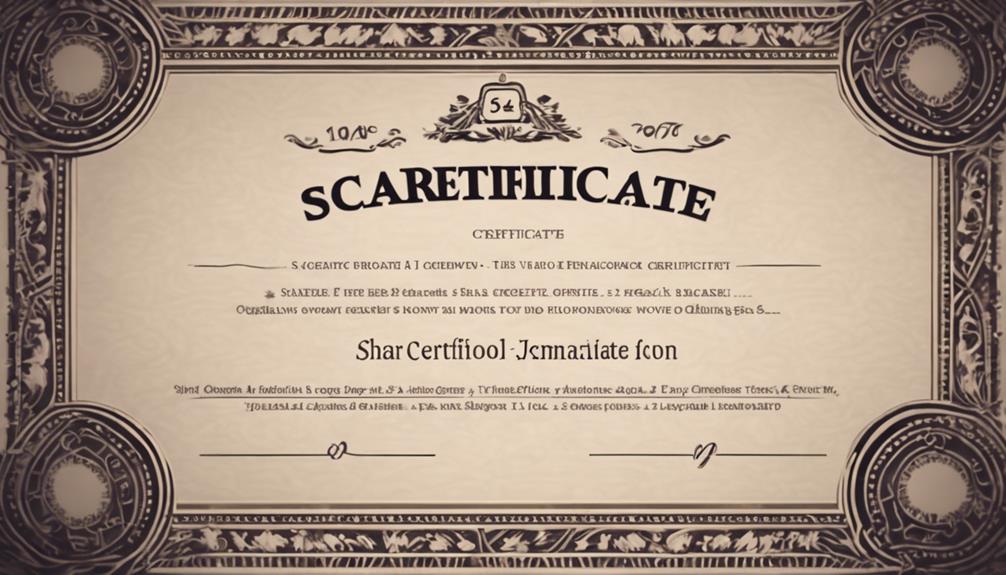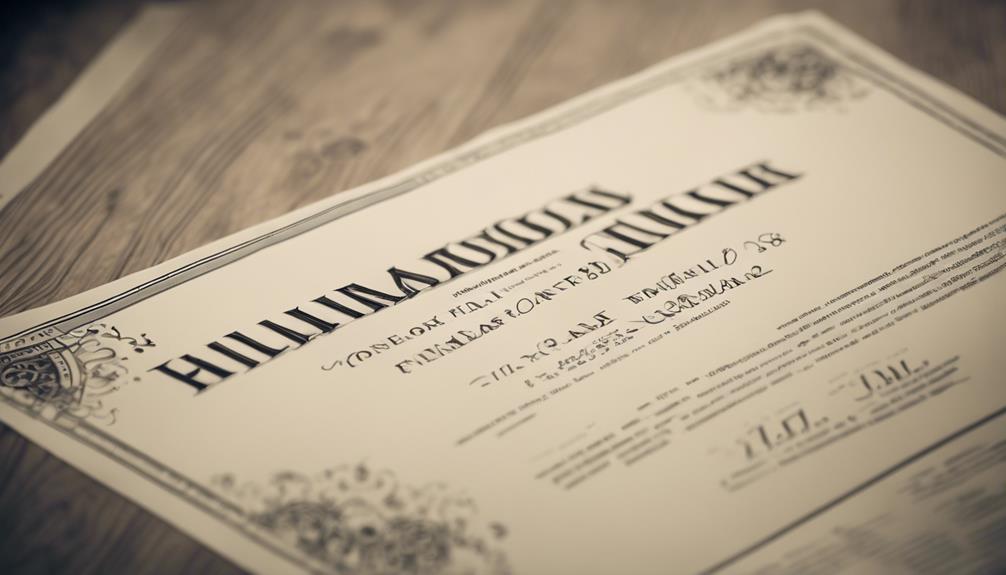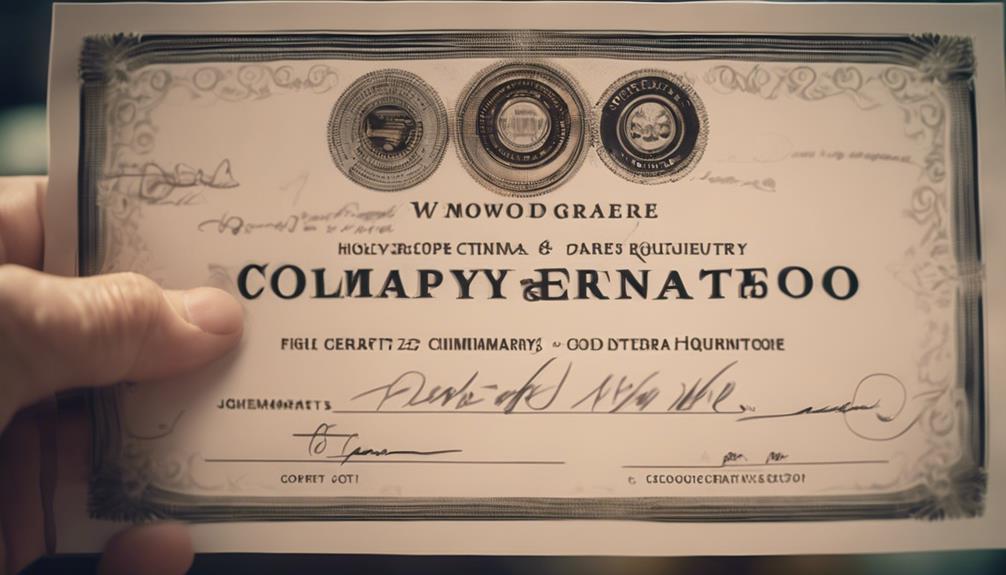A share certificate stands as a tangible evidence to one's stake in a company, embodying a vital aspect of ownership in the corporate world.
However, beyond its material presence, a share certificate carries significant weight in the financial landscape, with implications that extend far beyond a mere piece of paper.
As we explore the intricacies of this document, its function in investment strategies, compliance with legal frameworks, and the nuances of its issuance and transfer, a deeper understanding of its role in the intricate web of corporate ownership emerges, shedding light on its enduring relevance in today's dynamic financial markets.
Key Takeaways
- Share certificates serve as legal proof of ownership within a company.
- They are crucial for shareholder identification and transparent investing.
- Share certificates must include essential details for validation and shareholder rights.
- Compliance with legal requirements, including timely issuance, is essential for share certificates.
A share certificate is a formal document that serves as conclusive evidence of an individual's ownership of shares within a company, embodying essential details essential for legal validation and shareholder identification. It contains important information such as the company name, registration number, shareholder details, share class, and quantity held.
Share certificates are mandated by the Companies Act 2006 and are considered prima facie evidence of ownership, providing security and authenticity to shareholders. Issuance of share certificates within two months of share allotment or transfer is a legal requirement to make certain compliance with regulations.
These certificates are pivotal in upholding corporate governance standards by promoting transparency, ensuring accountability, and maintaining accurate shareholder records essential for a safe and secure investment environment.
Importance in Investing
Share certificates play a critical role in investment activities, serving as legal documentation that validates an individual's ownership of shares within a company and establishing a foundation for secure and transparent investing practices. They are essential for investors due to various reasons:
- Legal Proof: Share certificates provide irrefutable evidence of ownership.
- Receipt of Purchase: They certify the type and quantity of shares owned.
- Corporate Governance: Share certificates define ownership rights and enable shareholder participation in voting.
- Historical Significance: Investors value share certificates as a tangible link to their ownership in a company.
Issuing share certificates in compliance with legal requirements is a fundamental aspect of maintaining transparency and accountability in shareholder ownership within a company.
The Companies Act 2006 stipulates that share certificates must be issued within two months of share allotment or transfer. These certificates must include essential details like company information, share class, quantity, shareholder particulars, and payment status to be considered valid.
Additionally, two signatures, one from an executive, are necessary on the certificates for authentication purposes. It's important to note that share certificates do not have an expiry date and remain valid until the shares are sold or transferred, ensuring a clear record of ownership within the company.
When distributing shares within a company, the process of issuing and transferring share certificates plays an essential role in documenting ownership and ensuring compliance with legal regulations.
Key points to ponder in this process include:
- Share certificates must be issued within two months of share allotment or transfer as per the Companies Act 2006.
- Essential information such as company details, unique certificate number, share class and quantity, shareholder details, and payment status must be included.
- Two directors or a director and a company secretary must sign the share certificates for validity and authentication.
- Separate share certificates are required for different share classes, with each shareholder receiving one or more certificates for their shares.
The process of managing lost or damaged share certificates requires adherence to specific replacement protocols and authorization procedures. In the case of damaged certificates, they should be returned to the issuing company for a new version.
Lost or stolen certificates are marked as canceled by companies while maintaining accurate records. Although there are no penalties for lost certificates, a formal process is necessary for their replacement. This process typically involves following company procedures and providing appropriate documentation.




